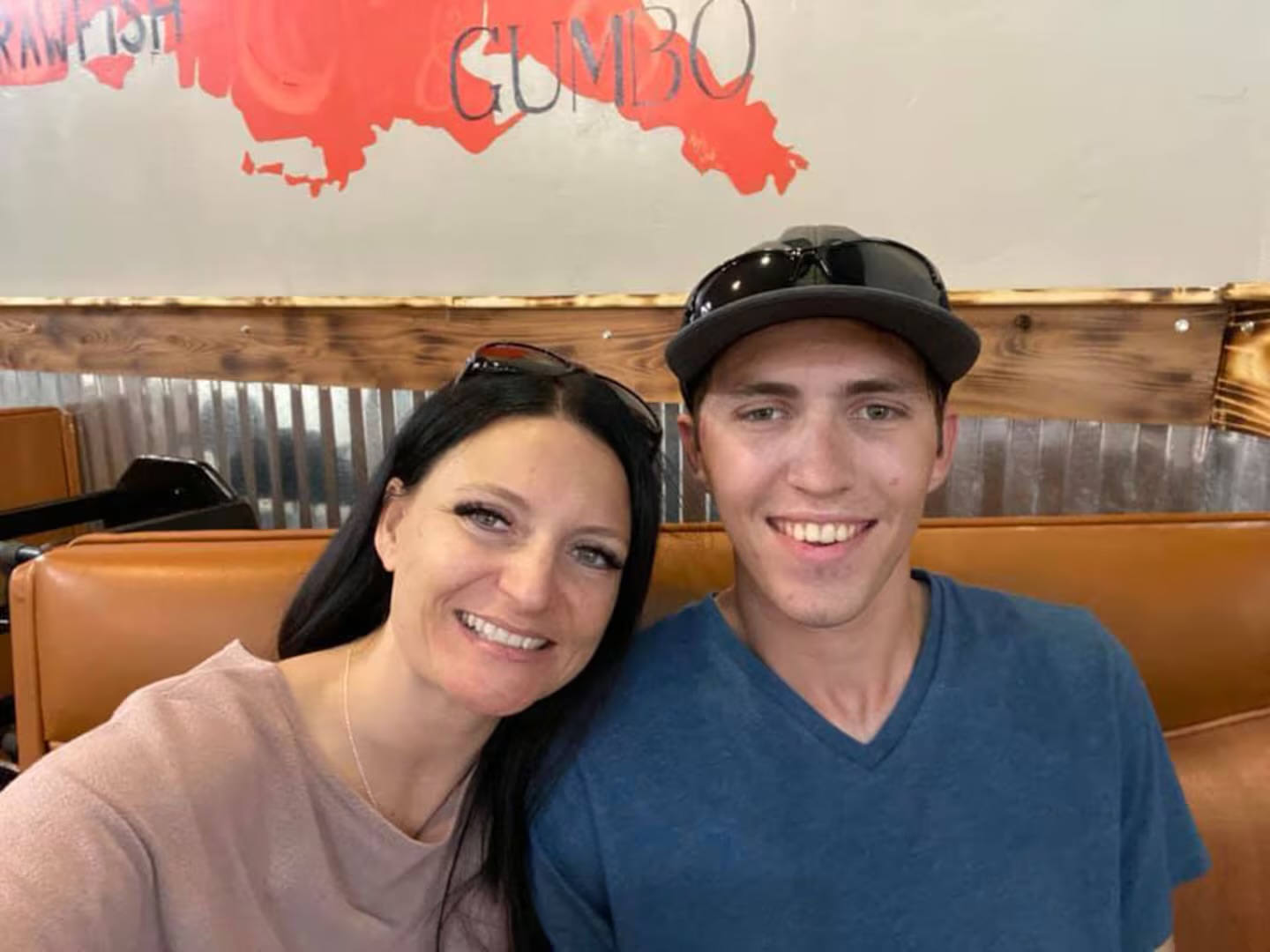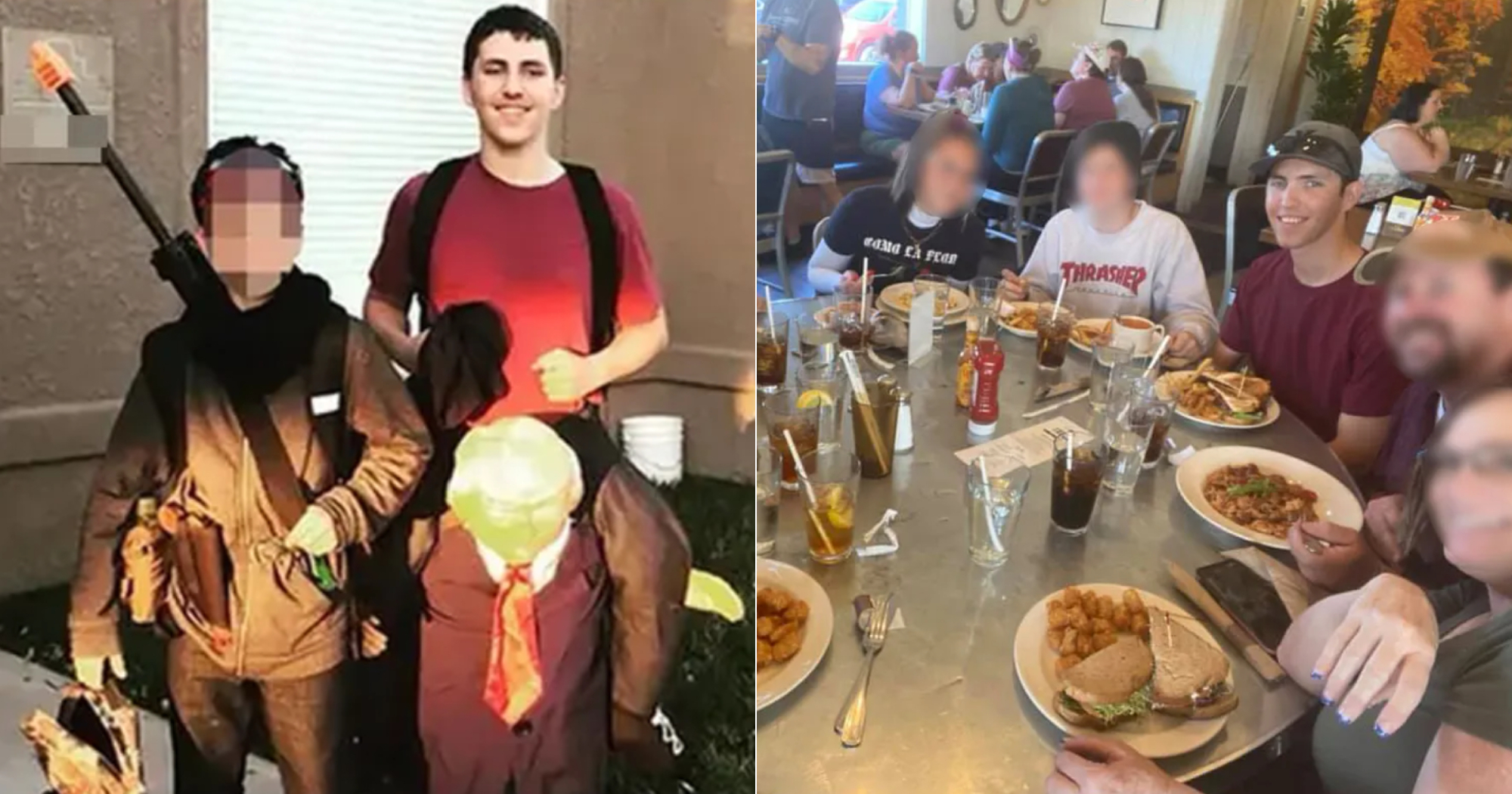
For weeks, the headlines have focused on one man: Tyler Robinson, the 22-year-old accused of fatally shooting conservative commentator Charlie Kirk. His mugshot has been splashed across screens, his name dissected in debates, his actions condemned by a nation still reeling from the shock of violence. But in the shadows, another story has been quietly unfolding — the story of his family.
Until now, they had remained silent. They stayed indoors, avoiding cameras, bracing themselves as online anger mounted. Strangers posted their addresses, hurled insults on social media, and branded them “monsters by blood.” But yesterday, Tyler’s family finally broke their silence, speaking with trembling voices not to defend the crime, but to defend their own humanity.
“We feel like we’re being attacked,” one relative said. “Tyler is the one who pulled the trigger, not us. We didn’t know, we couldn’t have known. But the world seems to think we’re guilty just for sharing his last name.”

The family described the last few weeks as unbearable — constant messages of hate, threats arriving online and even by phone. They said neighbors have turned cold, friends have distanced themselves, and their once-quiet street now feels like a stage for shame.
“We are not the ones who killed Charlie Kirk,” another family member said, her voice breaking. “But we’re treated like criminals just because we’re related to him. We’ve lost our peace, our privacy, and in many ways, our dignity.”
At the heart of their statement was a plea: to be seen as human, not as accomplices. They admitted Tyler had made mistakes in the past, but insisted they never imagined he was capable of murder.
“He was young, he was reckless, and yes, he had a record. But he was also our son, our brother, our blood. People online say we must have raised him to be this way. That hurts more than we can explain. We wanted him to be good. We hoped he would turn his life around. But now… what do we do? Do we stop being allowed to live because of what he did?”
The family suggested that Tyler may have been manipulated or influenced, that his choices were not born in a vacuum. “We think he was led down this path by voices that pushed him, maybe even exploited his immaturity. He was not born to kill. He was someone’s child before he was a headline.”
But they also acknowledged reality. “The deed is done. A man is dead. A family has lost a father, a husband. We can’t undo that. We can’t pretend it didn’t happen. We pray for Charlie Kirk’s family, we grieve for them too. But we also pray for our own — because we’ve lost Tyler, in a different way. He will never come back to us as the boy we knew.”
The most haunting line came near the end of their statement: “We wish Tyler had been better. We wish he had chosen a different road. But if he killed, does that mean we lose our right to live a decent life too?”
It was less a defense than a cry for recognition — recognition that guilt should not spill endlessly onto the innocent.
Reaction to the family’s words was mixed. Some empathized, recalling the countless mothers and fathers who have watched their children go astray, powerless to stop the spiral. Others, still raw with anger at Charlie Kirk’s death, saw the statement as deflection, a refusal to accept the depth of the crime.
On social media, the divide was stark. “The family didn’t pull the trigger. Leave them alone,” one user wrote. “They are grieving too — grieving the son they thought they had.” Another countered: “They raised him. They can’t act like this came from nowhere. Actions have consequences — for all of them.”

Experts in trauma and victim support weighed in, reminding the public that families of perpetrators often suffer what they call “secondary victimization” — punished socially, emotionally, and even economically for crimes they did not commit.
“When someone commits a terrible act, their family is often left in ruins,” one psychologist explained. “They face guilt, shame, and public scorn. But they are not the perpetrator. They need compassion too, even if it feels uncomfortable to give it.”
For Charlie Kirk’s widow and children, those words may offer little comfort. Their pain is direct, irreversible, and devastating. And for Tyler’s family, the pain is tangled: mourning the man their son became, while being condemned for it.
What unites both families is loss. One lost a husband and father to violence. The other lost a son and brother to the consequences of his own choices. Both live under the weight of absence. Both wake each morning to grief.
And perhaps, in that truth, lies the only fragile bridge between them: the recognition that in tragedy, there are no winners, only survivors.
As Tyler Robinson awaits trial, his family remains caught in the storm. They do not ask to be excused. They ask to be allowed to live. To mourn in their own way. To believe, however faintly, that one day they might walk outside without fear, without shame, without carrying a burden that was never theirs to bear.
“We’re not asking people to forgive Tyler,” his family said. “We’re asking people to see us. To see that we’re human too. We’re not murderers. We’re just broken.”
